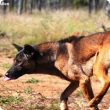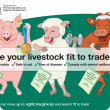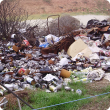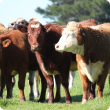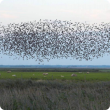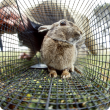Acts
Biosecurity and Agriculture Management Act 2007
Filter by search
Filter by topic
- Pests, weeds & diseases (12) Apply Pests, weeds & diseases filter
- Control methods (12) Apply Control methods filter
- (-) Remove Chemicals filter Chemicals
- Biosecurity & quarantine (8) Apply Biosecurity & quarantine filter
- Biosecurity (7) Apply Biosecurity filter
- Pests (7) Apply Pests filter
- Preventing residues (5) Apply Preventing residues filter
- Pest animals (5) Apply Pest animals filter
- Livestock & animals (5) Apply Livestock & animals filter
- Livestock biosecurity (5) Apply Livestock biosecurity filter
- Residues in livestock (4) Apply Residues in livestock filter
- Pest mammals (4) Apply Pest mammals filter
- Baits & poisons (4) Apply Baits & poisons filter
- Livestock management (4) Apply Livestock management filter
- Livestock health & diseases (2) Apply Livestock health & diseases filter
- Veterinary chemicals (2) Apply Veterinary chemicals filter
- Invasive species (2) Apply Invasive species filter
- Strychnine (2) Apply Strychnine filter
- Livestock disease surveillance (2) Apply Livestock disease surveillance filter
- Food, export & investment (2) Apply Food, export & investment filter
- Diseases (2) Apply Diseases filter
- 1080 (2) Apply 1080 filter
- Emergency animal disease preparedness (2) Apply Emergency animal disease preparedness filter
- Mechanical, physical and cultural (1) Apply Mechanical, physical and cultural filter
- Management & reproduction (1) Apply Management & reproduction filter
- Pest insects (1) Apply Pest insects filter
- Stockfeed (1) Apply Stockfeed filter
- Wildlife biosecurity (1) Apply Wildlife biosecurity filter
- Livestock species (1) Apply Livestock species filter
- Residues in crops (1) Apply Residues in crops filter
- Poultry & birds (1) Apply Poultry & birds filter
- Insecticides (1) Apply Insecticides filter
- Crops (1) Apply Crops filter
- Birds (1) Apply Birds filter
- Baiting & poison permits (1) Apply Baiting & poison permits filter
- Food & beverages (1) Apply Food & beverages filter
- Food safety (1) Apply Food safety filter
- Investment attraction (1) Apply Investment attraction filter
- Grains (1) Apply Grains filter
- Livestock movement & identification (1) Apply Livestock movement & identification filter


